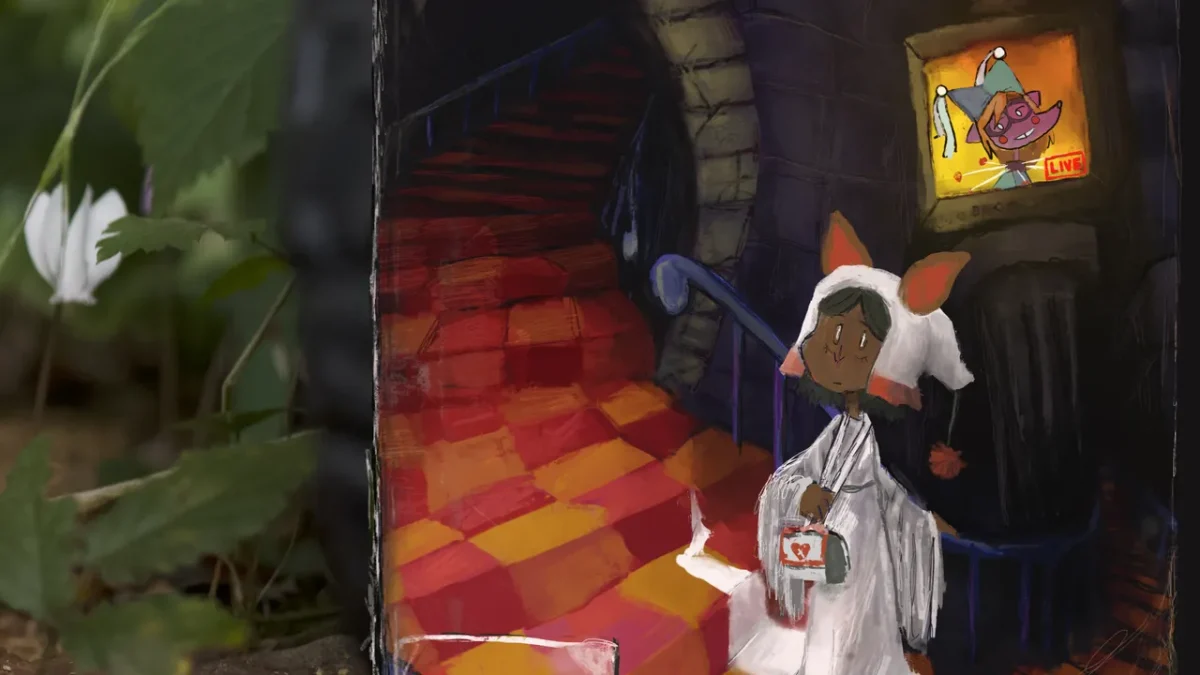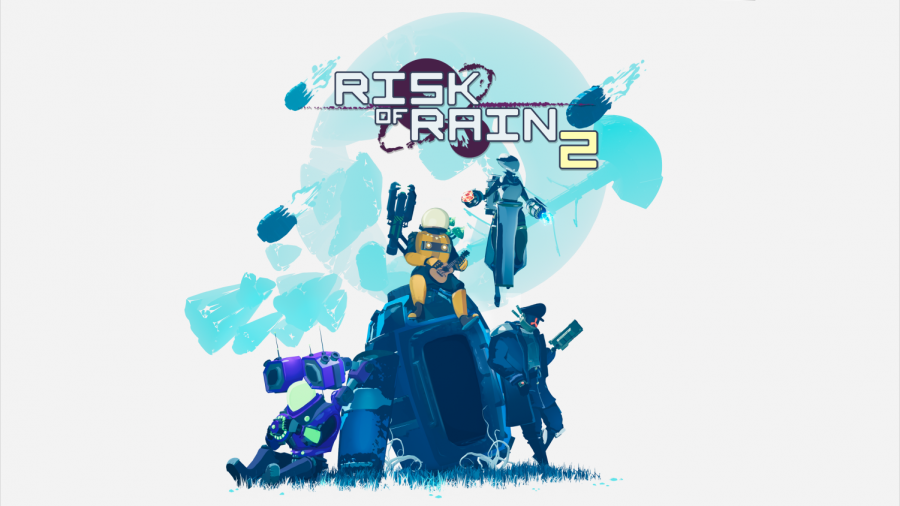
As of 2023, the video game developer Round8 had only ever had one game published: an MMO (Massively Multiplayer Online Game) reboot of “Bless Online,” called Bless Unleashed. The game saw mixed reviews and still runs today for fans of the MMO RPG (Roleplaying Game) genre. A year ago today, Round8 released a little game called Lies of P, a Souls-like game based on the story of Pinocchio by Carlo Collodi, and published by NEOWIZ, a South Korean video game publisher. Lies of P is the greatest game ever, full stop.
What is a Souls-like? (hint: it’s in the name)
There is a good chance that if you’re interested in games you’ve heard the term Souls-like, but if not, here’s a quick overview: Souls-likes are a genre of games heavily based on the FromSoftware games Demon Souls and Dark Souls, which released back in 2009 and 2011. These original games had loose fantasy elements and puzzles reminiscent of the Legend of Zelda series, but differentiated themselves through a more deliberate style of gameplay that challenged players to the utmost. Dark Souls specifically is notorious for its difficulty with the second edition of the game, which bundled in the DLC as well as the original game, being named the “Prepare to Die Edition.”
In the beginning Souls-likes represented a niche in gaming, a type of game for only the most dedicated of fans who wanted to challenge themselves to an almost ridiculous extent. As Souls-likes became more mainstream in the wake of titles like Dark Souls 3, FromSoftware released a title that many people will be familiar with: Elden Ring.
I don’t need to tell you how much Elden Ring changed the way people thought about Souls-likes, finally there was a great place for people who maybe found the other games to challenging or confusing to enter. It won game of the year, it was an all time peak of almost 1 million concurrent players on steam, and it was fun to play at any skill level.
So why does any of this matter when talking about Lies of P? Well, because people like making comparisons, and Souls-likes are especially prone to this. When Lies of P came out it saw critical and commercial success, but as they always do reviewers were quick to call this, “Bloodborne meets Sekiro.” This comparison isn’t too far off; the game shares some components with Bloodborne in its world and basic gameplay, as does it share Sekiro: Shadows Die Twice’s parry and posture mechanic, but these comparisons do drag away from its uniqueness in how it differentiates itself.
Lies of P is a completely different beast
Lies of P is so unique, sure its world is like Bloodborne with its Victorian architecture, but it also places itself way closer to the industrial revolution era and opts away from Bloodborne’s religious and Lovecraftian elements. Lies of P has a dodge reminiscent of Bloodborne’s dodge, and when you block an attack you have the ability to regain the lost health by attacking similar to Bloodborne’s rally mechanic. Speaking of blocking one of your best defensive options is to block or parry an enemies attack, the former happens when you get hit while holding the block button and the latter when you press the block button right before an attack connects which cancels all damage you would take, similar to Sekiro.
These similarities make the games seem similar on the surface, but Lies of P adds additional depth that Bloodborne and Sekiro don’t. In Bloodborne, when an enemy attacks you have to dodge, it’s simply your only option because it gives you I-frames and you will otherwise take damage. This system does work well and is almost identical to the famous, “dodge roll,” that is used in FromSoftware’s other titles, but does turn the games into; hit this button at the right time and you’ll be fine. Sekiro did change this a little, now you can parry an enemy’s attack, or dodge it, or maybe even jump over it. This change is great but you don’t really have an incentive to dodge an enemies attack unless you can’t parry it since most moves have follow-ups that will still hit you and the only real way to kill a boss is by building their posture bar enough which builds way faster if you parry attacks. So Sekiro is in a position where you have the freedom to either dodge or go for a well timed parry, but parrying is the only real solution to a problem unless the game specifically tells you to jump an attack.
Lies of P finally gives you options, and what a welcome set of them it gives you. You can dodge or parry enemy attacks like Sekiro, but aren’t punished for trying either. Dodging works similarly where you get I-frames for the duration, but if you’re not sure you’ve timed it or you need extra distance you can tap the button an additional time to extend your dodge into a full roll to get clear away from an attack. Because enemies health bars function similar to the other Souls-likes, dodging isn’t putting you at a disadvantage since you can hit an enemy all the same. Lies of P still does promote parrying in a very unique way: in addition to being able to nullify what damage you would take an enemies posture is still damaged. Once you’ve done enough damage to an enemy’s posture their health bar will begin glowing white, and you have to succeed in landing a fully charged heavy attack (which can be really difficult) in order to knock them down and land a critical hit for massive damage. You can even just block an attack to reduce the damage you take to survive an otherwise lethal hit. The game also mixes in unique, “fury attacks,” which, “can’t be dodged or blocked,” and must be parried. The game says these attacks can’t be dodged but it really means your dodge I-frames won’t work, you can always still run away if you’re not sure about the timing.
Even healing is improved, sure your healing is a limited quantity per battle but when you run out you can regenerate 1 at a time by dealing damage to an enemy. This leads to a more aggressive playstyle, and every attempt at a tough boss, no matter how bad the start, can still end in success.
A story designed to be understood
If you have ever played a Souls-like you don’t need me to tell you that the story can be confusing. Entire channels are dedicated solely to compiling the story in an understandable way because not a lot of it is told to you in an understandable way. You remember that broken sword you picked up 3 areas ago? Well turns out the guy you’re currently fighting was part of a great demon war and that was his sword but he was corrupted by the most evil of all demons and cast his sword into a random bush guarded by 2 skeletons and a dog. That’s a cool story, but you’d only ever know that if you decided to look at the item description which is only told to you in a separate menu and 90% of the time just says, “it’s a wooden sword, made for poking and stuff.” This story telling is cool in its own right, every single item you find could be some super important artifact, or belong to Dave the paper man that you met already. The issue is for someone who is just trying to play through a game, events seemingly happen at random and suddenly Dave the paper man is Dave the demonic paper man and he’s trying to kill you because you accidentally stood on his favorite dandelion while walking around a random cave. Lies of P seems like it was made for people who enjoy a more straightforward approach, and thank god for that.
A Souls-like based on the story of Pinocchio is a ridiculous idea, but honestly works so well. Events that play out in the game are like Pinocchio, but the story is instead about a puppet (basically robots) uprising and you have to help destroy the King of Puppets because otherwise they’ll destroy the world and also you’re playing as Pinocchio who is also a puppet and you beat up other puppets with your big metal arm. Then as all this is happening a disease breaks out that completely petrifies people except for some reason some have started to turn into mindless monsters. If it happened in Pinocchio it will happen in this game, but in much more surprising ways than one would think. Take the Fox and the Cat: you meet these two characters as hired mercenaries who offer to help Pinocchio throughout his journeys but use his trust to take valuable information. They even still keep the Cat pretending to be Blind, but this time the man is actually going blind because of the petrification disease and you can help cure him but he will fight you later since he’s now in fighting shape again.
Lying is also an important feature of the game’s story, after all a puppet can’t lie. So when you are given

the choice to Lie for the benefit of another, are you proving that you’re more than just a puppet? That is, after all, what people do all the time. Even your hair style (and maybe color) changes over the course of the game, which is a nice way to show the passage of time and how your character is changing.
Even NPC quests, which are notoriously confusing in FromSoftware titles, are made just a bit easier to understand. At each checkpoint a character’s face appears next to the menu signaling that their quest can be progressed (usually by talking to them).
I don’t want to spoil the game’s story since it’s incredible, and you’ll at the very least understand the events that are transpiring.
Bosses are finally good
Ask anyone who likes these style of game what their favorite part is and chances are they’ll say the boss fights, and why wouldn’t they? A duel between two foes of… varying health bars, a true test of mettle to see if you have what it takes to learn, react, and overcome. These fights showcase the pinnacle of Souls-like combat, and are incredibly fun and especially satisfying to overcome.
Unfortunately sometimes FromSoftware decides that they want to mix things up with a boss who is more than a straight up fight. These types of bosses, aptly named gimmick bosses, need you to accomplish something different than simply dodging all the bosses attacks. These fights range in type and difficulty but overall the majority lead to a less fun fight than a normal dual.
Lies of P chooses a, “less is more,” approach and flat out removes these type of fights. This is an amazing choice that seems as though it should happen more. Even Elden Ring, amazing as it is, doesn’t completely ditch the idea for it’s main bosses with Rennala, Queen of The Full Moon being a pretty unenjoyable gimmick in addition to being dirt easy. Every fight in the game is simply that, a fight, with no invisible monkey’s to ruin the flow.
Runbacks is another Souls-like term people like throwing around, and it simply means the time it takes to go from a checkpoint to a boss arena. This is a bad mechanic since they can take upwards of 2 minutes just to have another go at a difficult boss and has been largely repealed in the more modern Souls-likes. In many games they still exist including Elden Ring sadly enough, but again Lies of P decides less is more and incorporates little to no runbacks with the longest taking only about 30-40 seconds.
Looking forward
Lies of P by no means did bad, it saw 1 million copies sold in the first month and was lorded over as one of the best non-FromSoftware Souls-like on the market. There in lies the problem though, people hold FromSoftware as the best creators of the Souls-like genre because it’s what they’re best known for. Everything I’ve mentioned are direct improvements to the entire genre as a whole, and this was completed by a company who’d never made a game like this before! This game is good, really good, so good I’d say I like it more than any of FromSoftware’s titles, but because everyone says FromSoftware knows what they’re doing less critique was put on the issues they kept and this game decided to change.
Round8 has announced they are working on both a DLC (Downloadable Content), likely based on the Wizard of Oz, and a second game. I personally am excited and I hope that you at least give this game the shot it deserves.































